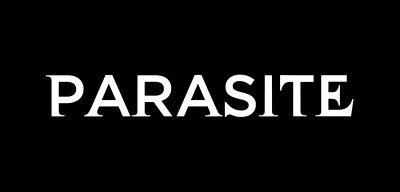
For the first time ever, an international film won the Oscar for best picture when the South Korean film “Parasite” took home the award at the 92nd Academy Awards. Bong Joon-Ho also took home Oscars for best director and best original screenplay. There was some criticism of the fact that “Parasite” won best picture in addition to its win for best international feature film earlier in the night, but overall, movie fans were thrilled to see “Parasite” clean up at the Oscars this year.
This praise and excitement is well-deserved, as “Parasite” is, in my opinion, one of the best films to come out in the last 10 years. Often a film will either have an interesting message or will tell a story in a unique and beautiful way. Many films fail to do both, but director Bong Joon-Ho and cinematographer Kyung-pyo Hong have crafted a visual and storytelling masterpiece – a rare gem among the recent influx of sequels and remakes that typically fill the movie theaters these days.
Starting with the cinematography, the film is breathtaking. Bong-Joon Ho uses lighting in really intriguing ways. Not only does the flickering light in the Park home create an eerie atmosphere at times, it is also crucial to the story, as we find out later in the film. The red-tinted light in the flooding scene is also quite stunning. There are also several shots of people looking out windows, which not only creates for some cool reflection shots but also creates a feeling of separation between the rich Park family and the poor Kim family, a contrast which is at the heart of the film.
The framing is masterful, especially with the staircases at both the Park’s house and the Kim’s house. The shot of Park Yeon-kyo coming up the stairs with the light directly above her head and her face in the center of the frame is the most iconic example of this. It is shots like this that really pull the audience into the film and will cause this film to be considered a classic by later generations.
It is hard to talk about this film without praising the acting. The entire cast does a fantastic job, and it shocked me that not a single actor was nominated for an acting award at the Oscars. Kang-Ho Song as Kim Ki-taek was the standout for me, and his long take monologue at the shelter was a hypnotizing moment in the film. Overall, the entire cast truly brings their characters to life.
This film is full of twists, turns and some intense moments, but a commentary on the differences between social classes lies in the center of it all. This is an important issue throughout the globe today. This is why I encourage everybody to see this film – it has something to say to people of all languages and backgrounds.
My favorite part of this movie is that neither side of the economic divide is inherently good or bad, and the movie does not try to force us to hate one side or the other. Both the Park family and the Kim family do some really bad things. The Park family is rude and entitled, and the Kim family lies, assaults and kills in order to move up the social and economic ladder. But the way in which the story plays out shows that it is not inherent evil in the characters that causes these actions, it is the situations that play out throughout the story that lead the characters to commit more drastic acts.
Similar to “Joker,” “Parasite” tells a story about people who are easy to sympathize with despite their evil actions. The fact that we sympathize with the Kim family tells us that deep down, we know that we each have our own breaking point. We are not perfect, and sometimes it is important that we are reminded of that.
Overall, I cannot recommend this film enough. To me this is a once-in-a-generation film that, despite the language barrier, can connect with absolutely anybody. Whether you are looking for a beautiful film, a film with a powerful message and great acting, or just a good time, “Parasite” is for you.
